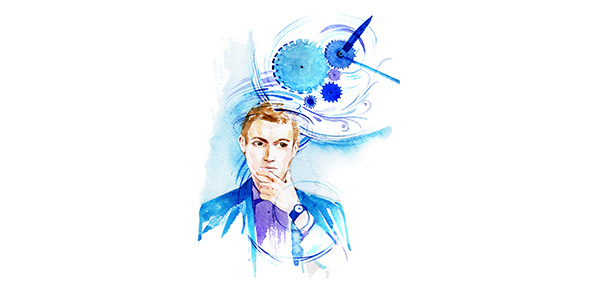Related Flashcards
Related Topics
Cards In This Set
| Front | Back |
|
(1) What two questions should we ask when
evaluating an argument? Give examples that illustrate the distinction between
these two questions.
|
We distinguish an argument’s form from its content. We ask, “Does the conclusion
follow from the premises and are the premises true?” If the conclusion
necessarily follows, then the argument is deductive,
and if it probably
follows, then the argument is inductive.
Most philosophical arguments
are inductive. Assuming the premises are true, is the conclusion true? If the
answer is yes, then the argument has valid
form. If the premises are
also true, then the argument is sound. Sound premises that agreeable by the audience
will also be persuasive.
|
|
(1) What is idealism? How is it supposed to
provide a response to the evil demon scenario?
|
Idealism:
a metaphysical thesis (response to skepticism
of the external world)
that all reality
is a construct of mental phenomenon; there is no such thing as mind-independent
reality (There’s no reality that exists without us perceiving it). Everything is mental. Bishop Berkley thought the
physical universe
is a construct of our ideas; physical objects are simply collections of ideas. “Esse est percipi”- its being consists in
its being perceived. But if this is true,
how can an object, such as a table, exist unperceived? Berkley’s response: God
perceives all things at a time, so they exist. We don’t perceive an evil demon
behind reality. This means there can’t be one creating false perceptions.
|
|
(1) What is the argument from analogy? What
conclusion is it supposed to establish?
|
Russell on analogy (in response to skepticism of other minds): A usually causes B, and
usually only A causes B. B occurred. Therefore, A also occurred. This applies to
pain causing “pain-behavior” (like saying ouch). “On this ground I infer
that other people’s bodies are associated with minds, which resemble mine in
proportion as their bodily behavior resembles my own.”
The Argument from Analogy:
·
Pain (in me)
usually causes pain-behavior (in me), and usually only pain causes
pain-behavior
·
Pain-behavior
occurred
·
Therefore,
pain occurred
·
But, I did not
myself experience any pain
Therefore,
·
Someone else experienced pain (there are other
minds)
The
argument from analogy has been an enduringly popular response to skepticism of other minds. But how could
it be legitimate to extrapolate from one
single case, my own, to conclude that pain-behavior is in general caused by pain? Response:
inference to the best explanation.
|
|
(1) What is the argument from doubt? Explain
how the argument involves an illegitimate use of Leibniz’s law.
|
The Argument from Doubt: one of Descartes’ arguments for mind and
body. I can
doubt the existence of my body, but not the existence of myself. Therefore,
they must be separate by Leibniz law:
If A and B are the same objects,
then they share all the same properties. Likewise, if A and B are not the same objects,
then they do no share all the same properties. A property of my body is that I
can doubt its existence. A property of myself is that I can’t doubt the
existence of it. Therefore, they are not the same thing. This is an illegitimate use
of Leibniz’s law: beliefs, doubts, justification, and knowledge.
It cannot
apply the law to imply that A and B are distinct entities, so the argument is
fallacious.
|
|
(1) What is interactionism? What is
epiphenomenalism? Explain why interactionism is extremely plausible, while
epiphenomenalism is extremely implausible.
|
Interactionism: the metaphysical doctrine that the mind can enter
into causal interactions
with the physical world. Interactionism is an enormously plausible
doctrine because we tend to think of our mind as affecting our body’s actions.
This allows us to talk about desires
and beliefs, which are mentally driven.
Almost everyone believes in interactionism.
Descartes makes
many connections that support interactionism. Epiphenomenalism: body
affects mind, but mind does not affect body. This is unattractive because some
actions cannot be thought of as driven by anything other than the mental.
Occassionalism and pre-established harmony seem like desperate reactions to
epiphenomenalism.
|
|
(1) Many contemporary philosophers argue that
dualism leads almost inevitably to epiphenomenalism. Explain this argument as
convincingly as you can. How compelling do you find this argument?
|
Dualism: the doctrine that thinking beings possess immaterial souls
entirely distinct
from their physical bodies. I am distinct from my body because there are
two types of stuff, the mental and the physical. My mind is mental and unextended.
My body is physical and extended. However, dualists argue that mind
and body can impact one another causally. But every physical event must
have a physical cause according to the laws of physics, so it seems impossible
for the unextended mind to affect the physical body. It is for this reason
that both mind and body affecting the body is causally overdetermined.
Every movement of the body has a physical cause. But, if a given
bodily movement also had a mental cause, that would be more than is necessary.
So if we espouse both dualism and interactionism, then we must hold
that either the mind can interfere with physical forces and violate the laws
of physics, or the mind simply reinforces the physical forces impacting the
body, thus entailing massive causal overdetermination. It seems we are forced
to accept epiphenomenalism, the
doctrine that one’s mind exerts no causal
impact upon one’s body (the mind is just along for the ride).
|
|
(1) Explain the Simple Dualist and Simple
Material theories of personal identity. What considerations does Locke think
tell against both of these theories?
|
Simple
Dualist: Persons A and and Person B are numerically identical if and only if A and B
share the same immaterial soul. Response: Past lives/reincarnation.
Locke says that one might share the same soul as a person in the past, but can’t remember
events from previous lives. Due to a lack
of memory/consciousness, they can’t be the same person.
Simple Material: Persons A
and Person B are the numerically identical if and only if A and B share the same body. Response:
Night Man/Day Man. Night Man
does not remember the Day Man’s experiences and vice-versa (like Jekyll and Hyde).
Two people can be distinct (different souls) and share the same body.
Counter-example against both: Prince and the Cobbler (body switching). The immaterial
souls stay in the same place (breaks dualist view) even though consciousness is
swapped, and they have switched bodies (breaks materialist view).
|
|
Modus ponens
|
·
: If P, then Q.
P. Therefore, Q.
§ Skepticism: If not P, then not Q. Not P. Therefore,
not Q.
§ If you can’t know that things are as they seem,
then you cannot have knowledge
§ You can’t know that things are as they seem
§ Therefore, you can’t have knowledge
|
|
The dreaming argument
|
o There is
a spacious world of some sort
o But reality is not what it seems because what it
seems is based on our perceptions- which can deceive us
o Interpretation
1. If you can’t
know that you are not dreaming, then you can’t know anything about the external
world on the basis of perception
2. You can’t
know that your are not dreaming
Therefore,
3. You can’t
know anything about the external world on the basis of perception
If P, then Q. P. Therefore, Q. (valid)
|
|
Three levels of skeptical
doubt about the external world
|
o
1. Perceptional error: illusions,
hallucinations, etc.
§ Calls into question particular beliefs about my
immediate surroundings
o
2. The Dreaming Argument
§ Suggests I cannot know anything about the external
world on the basis of perception
o
3. The Evil Demon
§ Calls the very existence of an external world into
question (illusions created by a powerful evil demon)
|
|
The experience machine
|
·
Similar to being in the Matrix. It elicits a
central theme of philosophy, appearance versus reality. Two scenarios:
1.
You plug into the experience machine, and you
know the whole time that you are in the experience machine.
2.
You plug into the experience machine, but your
memories are erased so you don’t know that you are in the experience machine.
-Which
would you take?
-Nozick’s question: “What else can
matter to us, other than how our lives feel from inside?”
-Nozick’s answer: “We want to do
certain things, and not just have the experience of doing them.” He thinks we
care about how things really are, not just how they seem, that we care about
actually making a difference. But how could it possibly matter if I were
plugged into the experience machine? Isn’t my own immediate pleasure the only
thing I care about (hedonism).
-A crucial point: To establish that
there is something bad about living in the experience machine, we don’t need to
establish that plugging into the machine is never a rational decision. We only
need to establish that there is something bad about being in the experience
machine.
|
|
Skepticism about other
minds
|
o We don’t have direct access to other peoples’ minds
o Must ask others, whereas you don’t have to ask
yourself
o Must observe the behavior of others and infer
mental experience
o But couldn’t behavior be consistent with other
mental states?
§
i.e. seeming
bummed, but being happy
§
Does chocolate
ice cream taste the same to your vanilla loving friend?
·
Either it
tastes the same (same experience), and he just doesn’t like it
·
Or it tastes
different (different experience), and is disgusting
|
|
Three levels of skeptical
doubt about other minds
|
1. Lies, self-deception, misunderstandings, etc.
§
Calls into
question particular beliefs about other people’s mental states
2. Systematic deception (The Truman Show)
§
Suggests I
cannot know anything about other people’s mental states
3. Zombies; automata
§
Calls the very
existence of other minds into question
|
|
Behaviorism
|
·
Metaphysical claim (in response to skepticism of
other minds) that mental states are simply behavioral dispositions
o Disposition:
tendency to react certain ways in certain circumstances
o Behavior:
purely physical, perceptually observable
o A behaviorist would say that a person is
in pain (“mental state x”), if and only if, he or she exhibits the right
behavior
o Counter
examples:
1.
Super Spartans, acting/lying animals
2.
Some mental states are difficult or impossible to describe in terms of behavioral
dispositions, e.g. belifes
3.
Knowledge of one’s own behavior (Moore’s Paradox)
|
|
Marks of the mental
|
·
Qualitative
Character: many mental states feel a certain way. There is something it is
like to be in pain, or to look at a bright red light. Intentionality: some mental states are about things in the world,
and represent them. ex. My belief that Obama is president is about the
president- it bears some relation to the guy. Beliefs and intentions exhibit
intentionality, but do not have (much) qualitative character (what is it like
to believe that Obama is president?). Pains and tickles have qualitative
character but not (much) intentionality (pain is not about anything like
beliefs might be). Perceptions and emotions usually have both.
|







